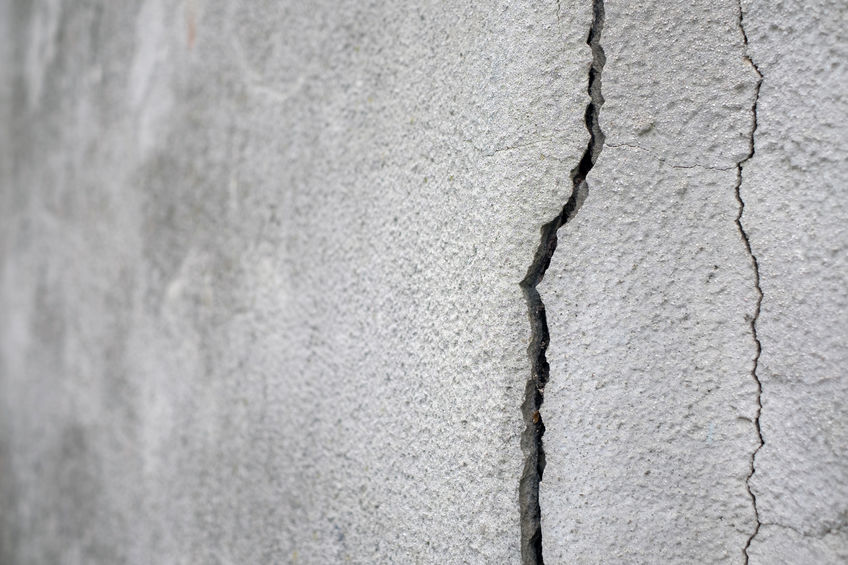Over time, most homes will develop cracks in their foundation. In fact, some homes may even develop them just a year after construction (this is typically a result of the foundation settling). If the cracks are small, then they’re not of any concern. However, if they’re wider than a quarter of an inch, it’s time to get them fixed. There are three main types of foundation cracks that you may find in your home, some more severe than others:
Vertical Cracks
These are the most common types of foundation cracks and typically nothing to be worried about. Vertical cracks run (you guessed it) vertically and are typically a result of soil settlement which causes additional pressure on a foundation wall. They don’t compromise the structural integrity of your home, but they can cause water to seep into your basement.
Horizontal Cracks
Unlike vertical cracks, horizontal cracks are definitely a cause for concern. These cracks are evidence of an unstable foundation that could, eventually, lead to an entire collapse. Horizontal cracks are a result of heavy soil pressure that’s causing the wall to bow and buckle. The weight of your home will cause even more stress, as can rain that rapidly freezes.
Stair Step Cracks
Stair step cracks are less serious than horizontal cracks, but a bit more so than vertical. These typically form in brick-and-mortar houses as the cracks will form along the mortar joins between individual blocks, creating a stair-step pattern. When you see a stair step crack, this means that the bricks are separating as a result of a shifting foundation.
If you have cracks in your foundation, don’t panic—call a professional. At Ivy Lea Construction, we can determine if your foundation cracks need immediate attention, and then lay out the steps to fix them. Give us a call at 716-875-8654 to learn more.

